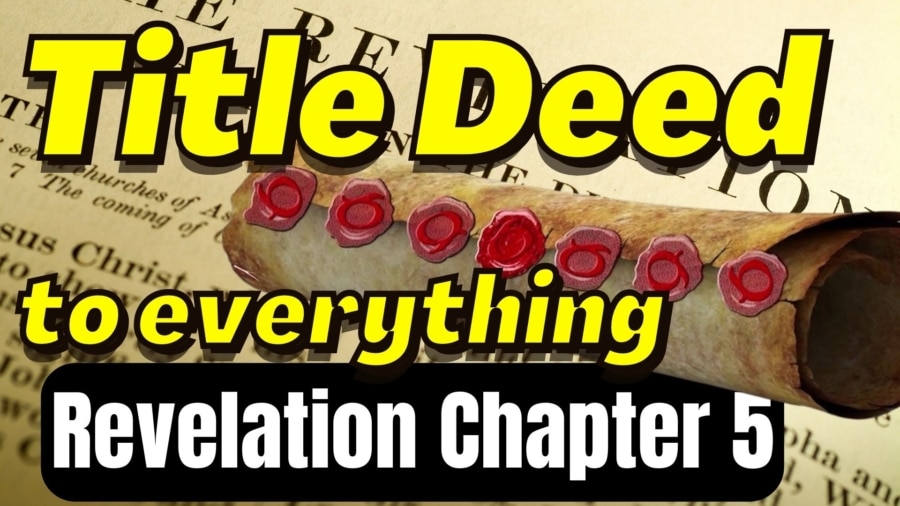As we study the message of Christ to the seven churches, we will do well to keep in mind four interpretation aides given by Dr. C. I. Scofield:
- Local meaning—these are seven actual churches existing in John’s time and to which he ministers.
- General meaning—these conditions may be found in churches throughout the Church Age, and this gives us a key for evaluating a local church by the “mind of Christ,” (1 Cor. 2:16).
- Personal meaning—each message includes the challenge “to him who overcomes” and “[him] who has an ear.” Thus, we can evaluate our own lives by this.
- Prophetic meaning—these seven churches are chosen in this order to illustrate church history from the time of John to the Rapture.
Two major trends are seen running through this account. First, there is the purifying process going on for those who are true believers—the “overcomers” by faith, 1 John 5:4–5. Second, there is an increasing apostasy of dead human religion. At the Rapture, the Body of Christ is removed, but apostate Christendom goes on to become the “great whore” of Revelation 17.
Ephesus—Revelation 2:1–7
The church of Ephesus was founded by the Apostle Paul (Acts 18:18–21; 19:1–20). John came there before the destruction of Jerusalem and made Ephesus the center of his circuit ministry. “Ephesus” means “beloved,” yet this church is rebuked for losing its love for Christ. They had many good “works” but had “fallen” from their occupation with the person of Christ.
Historical Ephesus illustrates church history from 35–100 AD. Note Satan’s attempt to infiltrate the church through the Nicolaitans. The word comes from niko (“to conquer”) and laos (“the people”). This attempted establishment of a “church hierarchy,” which distinguished between “clergy” and “laity,” was repulsed in the first century.
The warning to the believer who “has an ear” and would be an “overcomer” is to constantly maintain personal fellowship and love for Christ as the greatest of spiritual priorities. Obviously, we can only love the Living Word by loving and living the written Word. Revelation 2:5 gives the road of recovery as remembrance, repentance, and return to first acts of love for Christ. Here, we see the beginning of the cooling process leading to the Laodicean church.
Note:
- Commended for endurance, their stand against false apostles and the Nicolaitan heresy.
- Condemned for reversionism—the “first love” from which they had “fallen” was the sound doctrine of the book of Ephesians.
Smyrna—Revelation 2:8–11
“Smyrna” means “myrrh,” which was a gum or resin that was crushed to give off a fragrance. Myrrh was also used in embalming the dead. This church was persecuted and suffered greatly. Christ greets them as the One “who was dead, and came to life.” This poor church was rich in God’s sight, for they were faithful in spite of suffering, slander, and death. They are promised the “crown of life” (James 1:12). Note here Satan’s two-fold attack of external persecution and internal infiltration by legalistic Jews whom Christ calls the “synagogue of Satan.”
One of the great martyrs of Smyrna was the Pastor Polycarp, who was a student of John. He was burned at the stake, and won the crown of life!
Historically, Smyrna represents Church history from 100–300 A.D., a period of great persecution by Rome. At this time, Christianity was despised by the world as a collection of ragged, poor, deluded people, yet they were rich before God. When we come to Laodicea, we find a large, rich, respected church that is naked in God’s sight. Is there any question where we are today?
Note:
- This is the edified church.
- This suffering church endured the most and lasted the longest.
- Encouraged but not condemned.
- Smyrna had many great teachers and a maximum number of believers in maturity.
Pergamos—Revelation 2:12–17
“Pergamos” is a compound word meaning “married, exalted.” Pergamos was a rich, influential city of Asia Minor. Yet the church was worldly. She is greeted by Him “who has the sharp two-edged sword,”—the Word of God (Heb. 4:12). She has permitted the infiltration of three heresies. One, Satan had set up his throne here. We find that the teaching of the Babylonian mysteries were actually carried to Pergamos about 133 B.C. These teachings begun in ancient Babylon, would in time become so assimilated by Apostate Christianity as to become “Mystery Babylon.” Pergamos was the center of Caesar worship. Second, the doctrine of Balaam had gained a foothold (Num. 22–25). This was basically a teaching of compromise with the world—Balaam taught Israel to intermarry with the heathen—thus a “marriage” of the Church and the world. Third, the Nicolaitans who were repulsed by Ephesus are accepted in Pergamos.
What begins in apostasy as “deeds,” develops into “doctrines,” which in time becomes “denominations.” The overcomers will receive the “hidden manna,” the deep things of Christ (John 6:31–33; Col. 1:26), and the “white stone,” representing the vote of approval from God.
Historically, Pergamos represents church history from 300–500 A.D. Constantine made Christianity a “state religion” so that it became joined to the heathenistic practices of Rome.
During the period of this apostate union, Damasus, the Bishop of Rome (an unbeliever) was given the title of Supreme Pontiff of the Babylonian mysteries which came to Rome from Pergamos. Thus Satan’s program to “assimilate” the Church through infiltration took a great step forward. This was the age of “heresy,” yet even here there were “overcomers” who stood against the tide, and died a martyr’s death!
Note:
- It is the “surrounded” church.
- Pergamos was one of the most evil cities of the Ancient World. It was here that Satan had his headquarters on earth.
- There were many strong believers in Pergamos, but they were surrounded by religious apostasy.
- They are condemned for allowing apostasy into the church. Idolatry and rituals of ceremonial sex had infiltrated the church.
Thyatira—Revelation 2:18–29
The Son of God greets this church with flaming eyes and feet of judgment! Though there is some approval in Rev. 2:19, the church has become a haven for “Jezebel,” an actual woman who became prominent as a teacher and led people into idolatry and immorality. Though God gave her “time to repent” she would not. She is a preview of the “great whore” (Revelation 17) and so will be cast “into great tribulation” along with her children, i.e., apostate Christendom.
Even in Thyatira some remained faithful, Rev. 2:24–29. They are to hold fast to truth and are promised great authority in Christ’s kingdom for standing against the usurped authority of this Jezebel. They will be decorated with the “morning star,” the reflected glory of Jesus Christ (compare Dan. 12:3, 2 Pet. 1:19).
Historically “Thyatira,” which means “continual offering,” speaks of the age of Romanism, 500–1500 A.D. In Romanism the “once-for-all” sufficiency of the cross is denied for a continual offering of works, penance, and sacraments as a means of salvation. Just as Jezebel will not repent, neither will this system of idolatry as the “Babylon” of the future (cf., Jer. 51:8–9, Rev. 18:4). The “deep things of Satan” are the Babylonian teachings perpetuated by the Roman Church.
Note:
- Again, commended for production and service under pressure.
- However, again as others, condemned for allowing apostasy to enter, along with demonism and occult practices.
- Warned to hold fast.
Gene Cunningham - February 24, 2010
Beauty for Ashes #4
Mary and Martha had a decision to believe, to take the comfort when Jesus mentioned the resurrection (i.e., "do you believe this". "Father of all mercies, the Father of all comfort" (1 Co 1:3). 5 steps in life: 1) We have to chose the attitude we have: humility or pride. 2) There are two priorities resulting: spiritual or carnal. 3) From that we'll either make a wise or foolish decision. 4) Our actions then, are either right or wrong. 5) The results of actions therefore, are either blessing or cursing (Deu 11:26). If life doesn't taste good, guess whose recipe you're using. Wisdom is the skill of using God's word in life. The 5 wisdom books: 1) Job teaches the skill of how to suffer. 2) Psalms teaches us to pray. 3) Proverbs teaches us how to think. 4) Ecclesiates teaches how to live in the world the way it is. 5) Song of Solomon teaches us how to love. We learn in our human relationships whether our relationship with God is right.
The Father as the source of comfort: Psa 84:1-12. You cannot have a family without 3 people. Ephesians is trinitarian; "For this cause I bow my knees to the Father of our Lord Jesus Christ, of whom the whole family in heaven and earth is named" (Eph 3:14-15). Conference notes are . Three sections amplify the Father, Son, and Holy Spirit. Those who abide in Christ will always be praising Him (Psa 84:4). Be will to take the challenge of life, the difficult path (Psa 84:5). We have to go through the valley because there's no other way to receive the Father's comfort (Psa 84:5-7). Faith to faith: (Rom 1:17) spiritual growth. Strength to strength (Psa 84:7). Glory to glory (2Co 3:18). He is the Lord of the Armies, standing guard, but also "the God of Jacob", the God who transforms lives (Psa 84:8). The need arises for comfort; the provision is there when needed. The Lord is our shield (Psa 84:9). "No good thing will He withhold from those who walk uprightly" (Psa 84:10-12).
Compounds of the word Jehovah:
- Jehovah Jireh — "I am your all-sufficiency" (Exo 3:15, Exo 22:14);
- Jehovah Rapha — "I am your healing" (Exo 15:26);
- Jehovah Shalom — "I am your peace" (Jdg 6:23-24);
- Jehovah Raah — "I am your Shepard" (Psa 23:1);
- Jehovah Tsidkenu — "I am your Righteousness" (Jer 23:6)
- Jehovah Sabbaoth — "I am your Defender" (Psa 84:3, Psa 84:8)
5 steps to experiencing God's comfort (Isa 61:1-3). Gospel of John speaks of God the Father 109 times, more than he mentions faith.
Conference notes for this series can be found [HERE]
Scripture References: Psalms 84:10-12, Jeremiah 23:6, Psalms 84:4, Psalms 84:9, Psalms 23:1, Ephesians 3:14-15, Psalms 84:8, Judges 6:23-24, Psalms 84:1-12, Psalms 84:7, Exodus 15:26, Deuteronomy 11:26, Isaiah 61:1-3, Romans 1:17, Exodus 22:14, Psalms 84:8, Psalms 84:5-7, Exodus 3:15, Psalms 84:3, Psalms 84:5






























